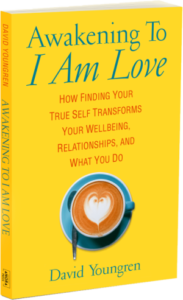Us Versus Them
Continued from yesterday…
The inability to unbiasedly seek out the truth often impacts us in ways that have enormous consequences on how we live. Think about how many people are willing to go to war for their country, or leave family and friends to go on a life-long mission in defense of their tradition.
Since early childhood, we are programmed to accept the narrative of our community. So we never question it. We just assume it’s true.
We have become so entrenched in our fear-induced ethnocentricity that when we struggle or experience failure, we shift responsibility to another group, political entity, race, religion, or nation. Marketing experts affirm our infinity with this kind of ethnocentricity when they propose that the key to growing a following is creating a narrative of “Us vs. Them.” Their advice is simple: Throw rocks at your group’s enemy, and you will get people to follow you. Nothing bonds people together like having a common enemy.
Of course, the reason why we are susceptible to this type of mass manipulation is two-fold: The false self needs to identify with a group that it considers unique and superior to enhance its sense of self.
And the false self wants justification for its failure. We blame our struggles on another group because the false self is convinced that finding someone else to blame will alleviate, or at least repress, our feelings of not being enough the way we are. So we seek out only the facts that support our current worldview, and categorize the rest as lies.
The inability to discern facts from lies has now become more pronounced with the emergence of social media. Hoaxes, conspiracy theories, and disinformation disguised as news are now readily available.
Since this bombardment of information is right there in front of us on our device, and we can use it to support our worldview and shift blame for our troubles onto a group that we oppose, then it must be the truth. On the other hand, whatever opposes our worldview must be “fake news.”
So what conclusion can we come to other than: fear has so deeply lodged itself in our minds that it’s easier to twist, ignore, and alter facts, than to accept the possibility of being wrong? We are, therefore, really not seekers of truth (no wonder we struggle).
The fear and insecurity that control the way we perceive reality have convinced us that it’s better to protect what we believe and attack what opposes our convictions, than to search for freedom by exploring the question: what is the truth?
To be continued tomorrow…
Adapted from Section 1 of Awakening To I Am Love by David Youngren
Add Impact To Your Inbox
Get the Daily Wisdom email sent to you
Add Impact To My Inbox
Daily Wisdom
Wisdom is knowledge deepened by love
Your privacy is important to us; we do not sell, rent, or give your name or address to anyone without your permission.
About
Meditations
Store
Events
Stay Connected
© 2021 Path Of Love. All Rights Reserved. P.O. Box 27857 San Diego, CA 92198 USA
Developed by Limitless - YourWinningWebsite.com


